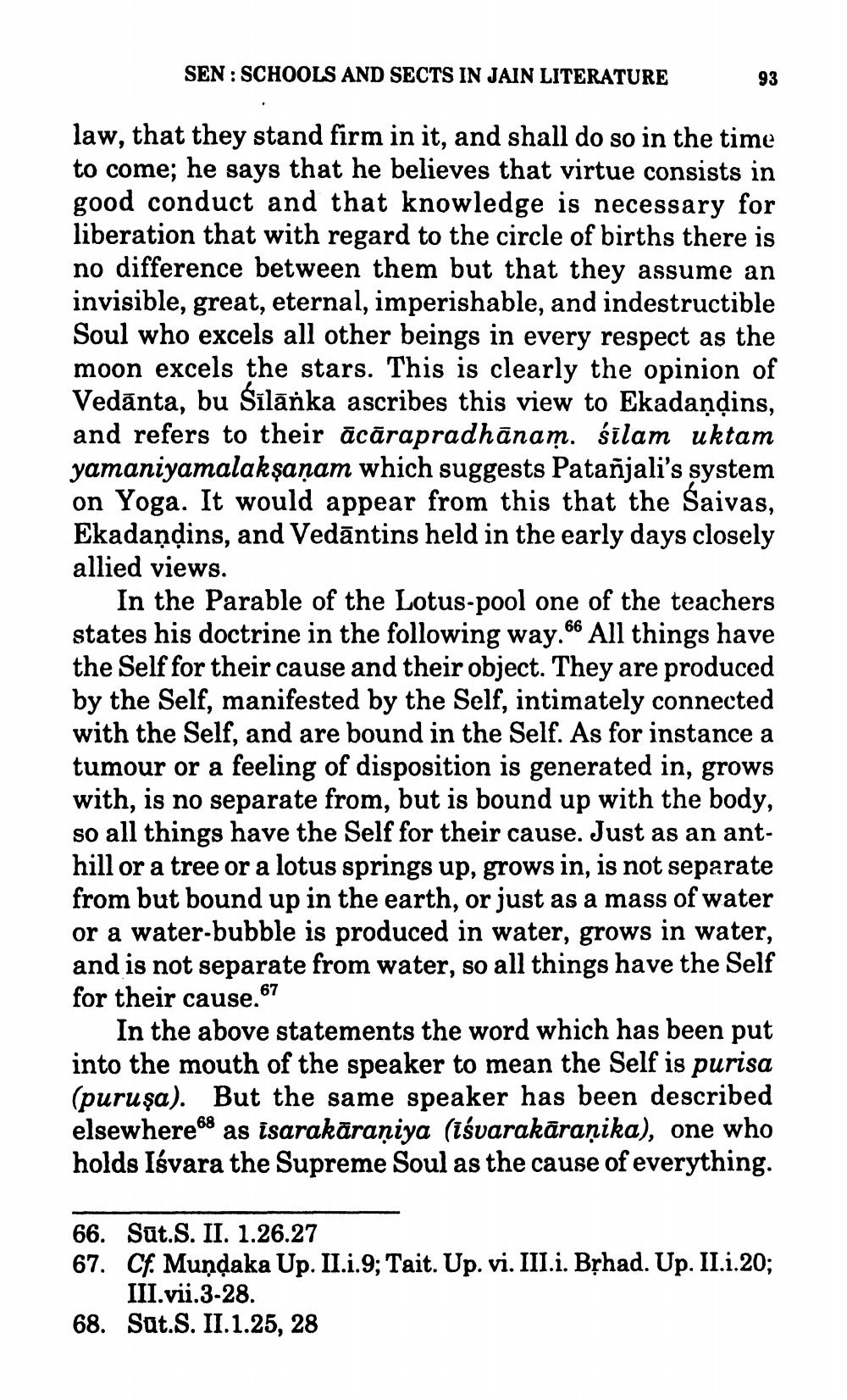________________
SEN: SCHOOLS AND SECTS IN JAIN LITERATURE
93
law, that they stand firm in it, and shall do so in the time to come; he says that he believes that virtue consists in good conduct and that knowledge is necessary for liberation that with regard to the circle of births there is no difference between them but that they assume an invisible, great, eternal, imperishable, and indestructible Soul who excels all other beings in every respect as the moon excels the stars. This is clearly the opinion of Vedānta, bu Śilanka ascribes this view to Ekadanḍins, and refers to their acarapradhanam. silam uktam yamaniyamalakṣaṇam which suggests Patanjali's system on Yoga. It would appear from this that the Saivas, Ekadaṇḍins, and Vedāntins held in the early days closely allied views.
In the Parable of the Lotus-pool one of the teachers states his doctrine in the following way." All things have the Self for their cause and their object. They are produced by the Self, manifested by the Self, intimately connected with the Self, and are bound in the Self. As for instance a tumour or a feeling of disposition is generated in, grows with, is no separate from, but is bound up with the body, so all things have the Self for their cause. Just as an anthill or a tree or a lotus springs up, grows in, is not separate from but bound up in the earth, or just as a mass of water or a water-bubble is produced in water, grows in water, and is not separate from water, so all things have the Self for their cause."
67
In the above statements the word which has been put into the mouth of the speaker to mean the Self is purisa (puruşa). But the same speaker has been described elsewhere as isarakāraṇiya (iśvarakāraṇika), one who holds Isvara the Supreme Soul as the cause of everything.
66. Sut.S. II. 1.26.27
67. Cf. Mundaka Up. II.i.9; Tait. Up. vi. III.i. Bṛhad. Up. II.i.20; III.vii.3-28.
68. Sut.S. II.1.25, 28




